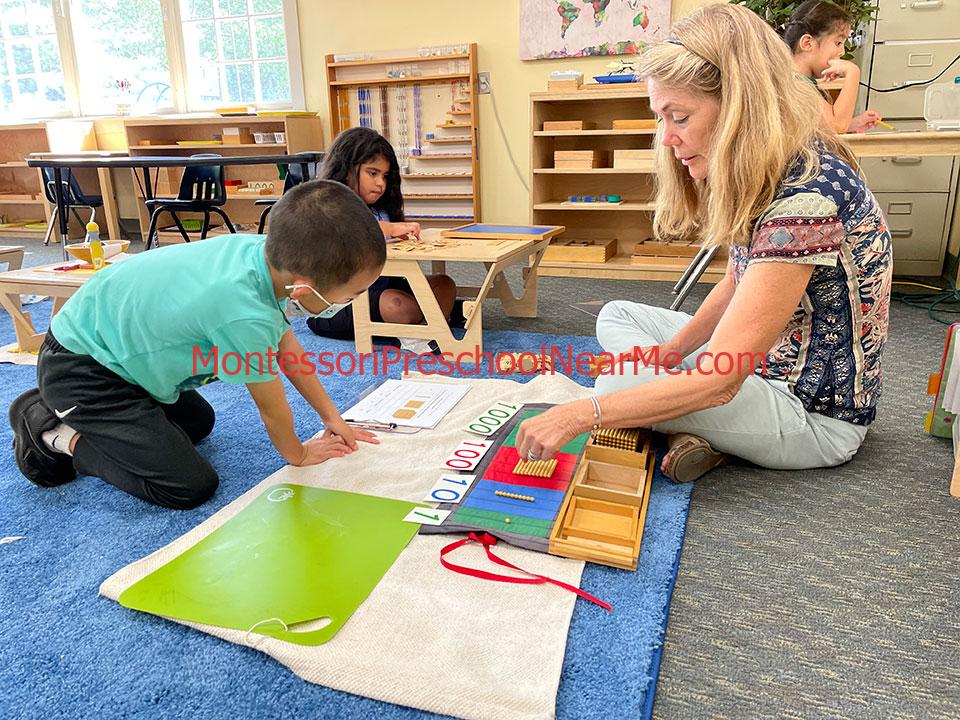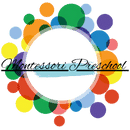
The Montessori Approach to Reading
Prioritizing Independent Learning
Montessori schools prioritize independent learning, allowing children to explore and discover the world of language at their own pace. This approach promotes a sense of autonomy and instills a love for learning in children.
Learning to Write Before Reading
In the Montessori curriculum, children first learn to write before they learn to read. This organic approach enables them to form words by combining letters for the sounds they know. Through hands-on activities, such as using the moveable alphabet, children develop a strong foundation in phonics and learn to associate sounds with symbols.
The Three Essential Components of Montessori Reading Curriculum
The Montessori reading curriculum emphasizes three essential components: phonics, comprehension based on visualization, and whole language learning.
- Phonics: By building words with the moveable alphabet and engaging in developmentally appropriate activities, children gain a solid foundation in phonics. They learn to recognize and produce letter sounds, blend sounds together, and form words.
- Comprehension Based on Visualization: Montessori educators use visual aids and materials to help children understand the meaning behind words and sentences. Through activities like picture-card matching and storytelling, children develop their comprehension skills.
- Whole Language Learning: Montessori schools understand that language is holistic, and reading should be taught in the context of meaningful language experiences. Children engage in activities that involve reading books, writing stories, and participating in discussions, which integrate all language elements.
Nurturing Literacy Skills with Joy
Montessori educators create a positive and enjoyable learning experience that nurtures literacy skills with joy. Reading is seen as an exciting adventure, and children are encouraged to explore books, discover new words, and share their thoughts and ideas with others.
Pre-Literacy Skills in Montessori Education
In addition to teaching reading, Montessori education emphasizes the development of various pre-literacy skills that lay the foundation for reading success. These skills include:
Motivation
Montessori schools strive to cultivate a love for reading and learning in children. They create a motivating environment where children are encouraged to explore books, discuss stories, and develop a curiosity for words and language.
Print Awareness
Montessori education focuses on developing print awareness in children. They learn about the different parts of a book, understand the concept of words and sentences, and recognize the role of print in conveying meaning.
Letter Knowledge
Children in Montessori schools develop letter knowledge through hands-on activities. They learn to recognize and name letters, understand their sounds, and make connections between letters and words.
Vocabulary
An extensive vocabulary is essential for reading comprehension. Montessori schools provide rich language experiences, exposing children to a wide range of words through stories, conversations, and discussions.
Narrative Skills
Montessori education encourages children to develop narrative skills, which involve understanding and constructing stories. Through storytelling and imaginative play, children learn to sequence events, understand plot structures, and effectively communicate their thoughts and ideas.
Phonological Awareness
Phonological awareness refers to the ability to manipulate and discriminate sounds in spoken language. Montessori schools incorporate multi-sensory language materials and activities to develop children’s phonological awareness, helping them identify and manipulate sounds, syllables, and rhymes.
The Effectiveness of the Montessori Approach to Teaching Reading
Research and testimonials from educators and parents have shown the effectiveness of the Montessori approach to teaching reading. By incorporating multi-sensory materials, individualized learning, and engaging activities, Montessori schools create an environment that fosters a love for reading and develops strong literacy skills.
Supporting Research
Numerous studies have highlighted the benefits of the Montessori approach to teaching reading. For example, a study conducted by Lillard et al. in 2017 found that children in Montessori programs showed higher levels of early reading skills compared to children in traditional programs. The researchers attributed this to the hands-on nature of Montessori materials and the focus on phonics.
Testimonials from Educators and Parents
Educators and parents who have experienced the Montessori approach to teaching reading often attest to its effectiveness. They observe their children becoming proficient readers at an early age, and the joy and enthusiasm they have for books and language.
Conclusion
The Montessori approach to teaching reading is a comprehensive and effective method that prioritizes independent learning and the development of pre-literacy skills. Through materials like the moveable alphabet and engaging activities, children gain a strong foundation in phonics. Montessori educators create a positive and joyful learning experience that fosters a love for reading and language. The effectiveness of the Montessori approach is supported by research and testimonials, making it a valuable choice for children’s literacy education. With its emphasis on phonics, comprehension, and whole language learning, the Montessori approach equips children with the skills they need to become confident and proficient readers.



